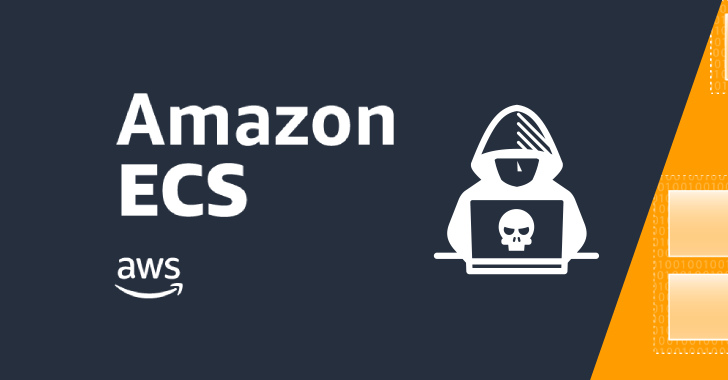
FINRA Compliance: Managing Digital Assets and Robo-Advisors
The financial industry is in the midst of a digital revolution, and with it comes the integration of digital assets and robo-advisors into traditional investment practices. As the landscape evolves, so do the regulatory requirements that govern it. The Financial Industry Regulatory Authority (FINRA) plays a crucial role in ensuring compliance and maintaining the integrity of the financial markets. In this article, we will explore the intersection of FINRA compliance, digital assets, and robo-advisors, shedding light on the challenges and opportunities that lie ahead.
The Rise of Digital Assets
Digital assets, including cryptocurrencies like Bitcoin and Ethereum, have gained significant traction in recent years. These assets operate on blockchain technology, offering transparency, security, and decentralization. Investors are drawn to the potential for high returns and diversification that digital assets can provide.
However, the uncharted territory of digital assets presents unique challenges for regulatory bodies like FINRA. Traditional financial systems have well-established rules and oversight mechanisms, but the same cannot be said for the decentralized world of cryptocurrencies.
Compliance Challenges:
- Lack of Uniform Regulation: Digital assets are not uniformly regulated across jurisdictions. Each country has its own approach, ranging from embracing them as legitimate financial instruments to outright bans. This creates confusion and compliance challenges for financial firms operating globally.
- Custody and Security: The custody of digital assets is a critical concern. Ensuring the security of digital wallets and preventing theft or loss of assets is paramount. Regulatory guidelines for securing digital assets are still evolving.
- Market Manipulation and Fraud: The crypto market is susceptible to manipulation and fraud. Pump-and-dump schemes, insider trading, and Ponzi schemes are all too common. Detecting and preventing such activities is a continuous challenge.
- AML and KYC Compliance: Anti-money laundering (AML) and Know Your Customer (KYC) regulations require firms to verify the identities of their clients. Implementing these requirements in the digital asset space can be complex due to pseudonymity and privacy features of many cryptocurrencies.
To address these challenges, FINRA is actively working to develop regulatory frameworks that provide clarity and protect investors in the digital asset space. This includes collaborating with other regulatory bodies and international organizations to establish best practices.
The Emergence of Robo-Advisors
Robo-advisors have disrupted the traditional investment landscape by offering automated, algorithm-driven portfolio management services. They provide investors with a low-cost, efficient way to access diversified portfolios tailored to their risk tolerance and financial goals. Robo-advisors are particularly appealing to millennials and younger investors who prefer digital solutions.
Compliance Challenges:
- Suitability and Risk Tolerance: Robo-advisors must ensure that investment recommendations align with the client’s suitability and risk tolerance. This requires collecting accurate client information and constantly monitoring and adjusting portfolios.
- Transparency and Disclosure: Robo-advisors should provide clear and concise information about their services, fees, and potential conflicts of interest. Clients need to fully understand how these platforms operate.
- Data Privacy: Collecting and using client data to make investment decisions raises concerns about data privacy. Robo-advisors must adhere to strict data protection regulations.
- Fiduciary Duty: Robo-advisors are expected to act in the best interest of their clients. Ensuring that they meet this fiduciary duty while operating at scale can be challenging.
FINRA has recognized the growing importance of robo-advisors in the financial industry and is actively monitoring these platforms to ensure they comply with regulatory standards. The development of comprehensive guidelines for robo-advisors is an ongoing process.
FINRA’s Approach to Digital Assets and Robo-Advisors
To address the unique compliance challenges posed by digital assets and robo-advisors, FINRA has adopted a multifaceted approach:
- Collaboration and Information Sharing:
FINRA collaborates with other regulatory bodies and organizations worldwide to develop consistent standards for digital asset regulation and robo-advisor oversight. This includes sharing information and best practices to enhance the industry’s understanding of these emerging technologies.
- Regulatory Guidance:
FINRA regularly issues guidance to its member firms on topics related to digital assets and robo-advisors. This guidance helps firms navigate the complex regulatory landscape and stay compliant with evolving rules and regulations.
- Investor Education:
Recognizing the importance of investor education, FINRA provides resources to help investors understand the risks and benefits associated with digital assets and robo-advisors. Informed investors are better equipped to make sound financial decisions.
- Examination and Enforcement:
FINRA conducts routine examinations of its member firms to assess their compliance with regulatory requirements. Firms involved in digital assets and robo-advisory services are subject to thorough scrutiny to ensure they are following the established rules.
- Rulemaking and Adaptation:
FINRA remains flexible and adaptable in its rulemaking processes. It is committed to adjusting its rules and regulations to keep pace with technological advancements while maintaining investor protection.
The Future of FINRA Compliance in a Digital World
As digital assets and robo-advisors continue to shape the financial landscape, the role of FINRA in ensuring compliance and investor protection becomes increasingly critical. The regulatory body’s approach is expected to evolve as the industry matures, with a few key trends and challenges on the horizon:
- Global Coordination: International coordination among regulatory bodies will become more important to create a harmonized regulatory framework for digital assets and robo-advisors. This will facilitate cross-border operations and enhance investor protection.
- Technology Integration: FINRA and other regulatory bodies will likely invest in advanced technology solutions, including artificial intelligence and blockchain, to improve surveillance and enforcement capabilities in the digital asset space.
- Education and Awareness: Investor education will continue to be a focus, with FINRA and other organizations providing resources to help individuals make informed decisions in the digital investment landscape.
- Regulatory Innovation: As new technologies emerge, FINRA will need to innovate its regulatory approach to address novel challenges, such as decentralized finance (DeFi) and the integration of artificial intelligence into robo-advisory services.
In conclusion, the digital transformation of the financial industry brings both opportunities and challenges. Digital assets and robo-advisors offer new avenues for investment and portfolio management, but they also require robust regulatory oversight to protect investors. FINRA’s role in ensuring compliance and maintaining market integrity is vital in this evolving landscape. By collaborating with other regulatory bodies, providing guidance, educating investors, and adapting to technological advancements, FINRA is well-positioned to navigate the complexities of the digital age and foster a safer and more transparent financial environment.
Contact Cyber Defense Advisors to learn more about our FINRA Compliance Assessment process.





